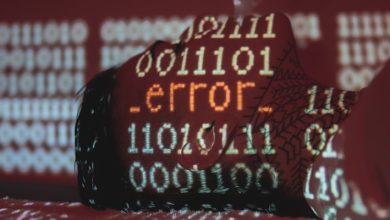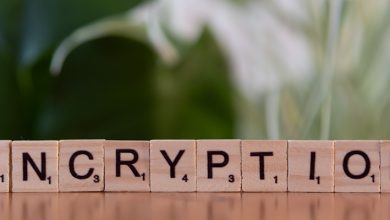The Importance of Strong Passwords and Two-Factor Authentication

- Why Strong Passwords Are Essential for Online Security
- The Role of Two-Factor Authentication in Preventing Hacking
- Common Password Mistakes to Avoid
- How Two-Factor Authentication Adds an Extra Layer of Protection
- The Dangers of Using Weak Passwords
- Tips for Creating and Managing Secure Passwords
Why Strong Passwords Are Essential for Online Security
Strong passwords play a crucial role in ensuring online security. They act as the first line of defense against cyber threats and unauthorized access to sensitive information. When creating a password, it is important to use a combination of uppercase and lowercase letters, numbers, and special characters to make it more complex and difficult to crack.
Using weak passwords, such as “123456” or “password,” makes it easy for hackers to gain access to your accounts and potentially steal your personal data. By using strong passwords, you significantly reduce the risk of falling victim to cyber attacks and protect your online identity.
It is also important to avoid using the same password for multiple accounts, as this increases the vulnerability of all your accounts if one of them is compromised. Using a password manager can help you generate and store unique, strong passwords for each of your accounts, making it easier to manage your online security.
Additionally, enabling two-factor authentication (2FA) provides an extra layer of security by requiring a second form of verification, such as a code sent to your mobile device, along with your password. This further reduces the risk of unauthorized access to your accounts, even if your password is compromised.
Overall, strong passwords and two-factor authentication are essential tools in protecting your online accounts and personal information from cyber threats. By taking simple steps to enhance your online security, you can minimize the risk of falling victim to hackers and ensure a safer online experience.
The Role of Two-Factor Authentication in Preventing Hacking
Two-factor authentication (2FA) is a crucial security measure that adds an extra layer of protection to your online accounts. By requiring users to provide two different authentication factors, such as a password and a unique code sent to their phone, 2FA significantly reduces the risk of hacking.
When hackers attempt to access an account protected by 2FA, they not only need to steal the user’s password but also have access to their second authentication factor, which is much more difficult to obtain. This additional step makes it exponentially harder for unauthorized individuals to breach an account, thus enhancing overall security.
Implementing 2FA is a simple yet effective way to mitigate the risk of hacking and safeguard sensitive information. Many popular online services offer 2FA as an option, and users should take advantage of this feature to protect their accounts from unauthorized access.
Common Password Mistakes to Avoid
When it comes to creating strong passwords, there are several common mistakes that people tend to make. By avoiding these errors, you can significantly enhance the security of your online accounts.
- Avoid using easily guessable passwords such as “123456” or “password”. These are the first passwords that hackers will try when attempting to access your accounts.
- Avoid using personal information like your name, birthdate, or address in your passwords. This information is easy to find online and can make it easier for hackers to crack your password.
- Avoid using the same password for multiple accounts. If one account is compromised, all of your accounts are at risk. Instead, use unique passwords for each account.
- Avoid using short passwords. The longer and more complex your password is, the harder it will be for hackers to crack. Aim for a password that is at least 12 characters long.
- Avoid storing your passwords in plain text on your computer or in a document. Instead, use a password manager to securely store and manage your passwords.
By steering clear of these common password mistakes, you can better protect your online accounts from being compromised. Strong passwords are the first line of defense in keeping your personal information safe from cyber threats.
How Two-Factor Authentication Adds an Extra Layer of Protection
Two-factor authentication (2FA) offers an additional layer of security beyond just using a strong password. This extra step helps to verify the identity of the user, making it more difficult for unauthorized individuals to gain access to sensitive information. By requiring not only something the user knows (like a password) but also something they have (such as a unique code sent to their phone), 2FA significantly reduces the risk of unauthorized access.
The Dangers of Using Weak Passwords
Using weak passwords can pose significant risks to your online security. When you use passwords that are easy to guess or crack, you are making it much easier for cybercriminals to gain unauthorized access to your accounts. This can lead to various negative consequences, including identity theft, financial loss, and privacy breaches.
One of the main dangers of using weak passwords is that cybercriminals can use automated tools to quickly guess or crack your password. This means that even if your password seems unique to you, it may be easily guessable to a malicious actor. Once they have access to your account, they can steal sensitive information, such as your personal details, financial data, and even your identity.
Moreover, weak passwords can also make you vulnerable to phishing attacks. Cybercriminals can use phishing emails or messages to trick you into revealing your password or other sensitive information. If you use the same weak password across multiple accounts, a cybercriminal who gains access to one of your accounts can potentially access all of your accounts.
Overall, the dangers of using weak passwords highlight the importance of using strong, unique passwords for each of your online accounts. By using strong passwords that are difficult to guess or crack, you can significantly enhance your online security and protect yourself from potential cyber threats.
Tips for Creating and Managing Secure Passwords
Creating and managing secure passwords is crucial in today’s digital age to protect your sensitive information from cyber threats. Here are some tips to help you strengthen your passwords:
- Use a combination of uppercase and lowercase letters, numbers, and special characters to increase the complexity of your password.
- Avoid using easily guessable information such as your name, birthdate, or common words as part of your password.
- Consider using passphrases instead of passwords, as they are longer and harder for hackers to crack.
- Regularly update your passwords and avoid using the same password for multiple accounts to minimize the risk of a security breach.
By following these tips, you can create and manage secure passwords that help protect your online accounts and personal information from unauthorized access. Remember, the strength of your password plays a crucial role in safeguarding your digital identity.



